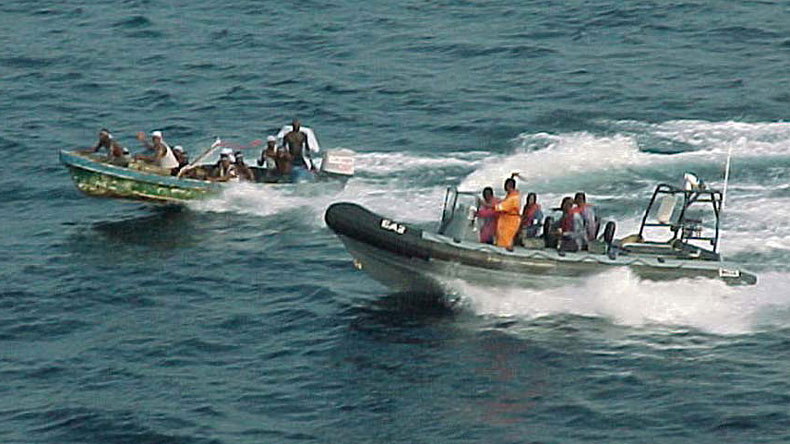From the News Desk: Road map could bring relief for struggling crews
Twelve-point plan provides a framework for procedures that can be adopted worldwide to ensure trade keeps flowing, while allowing personnel changes
A global solution to the issue of crew changes during the coronavirus crisis has been endorsed by the International Maritime Organization, which may offer a pathway to freeing seafarers trapped by lockdowns and travel restrictions
THE 12-point plan developed by a supply chain coalition led by industry and unions in co-operation with United Nations agencies sets out the responsibility of governments, shipowners, transport providers and seafarers and provides a framework for procedures that can be adopted worldwide to ensure that trade can keep flowing and seafarers can be relieved.
The 55-page road map covers a range of interested parties, including seafarer unions and international shipping industry associations as well as the insurance sector. IMO secretary-general Kitack Lim has endorsed the recommendations.
International Chamber of Shipping deputy secretary-general Simon Bennett told Lloyd’s List that in view of the critical urgency of the crisis concerning crew changes, the basic concept was developed in about a week, with a complete draft taking a further seven days.
It then took about 10 days to receive final agreement across the entire global industry — overseen by an ICS-led Crew Change Task Force — to accommodate the many different interests of the various sectors.
About 150,000 merchant seafarers will need to be changed over in two weeks’ time to ensure compliance with international maritime regulations, the ICS said. “Failure to do so risks the well-being of seafarers, maritime safety, as well as the supply chains that the world relies on.”
Since countries around the world started to instigate lockdown measures, the plight of seafarers unable to disembark has become an increasing problematic issue for the shipping industry.
A recent Seafarer Happiness Index poll found that the mental health of crews around the world is deteriorating because of feeling trapped and tired as a result of prolonged service on board. There is also an added layer of stress due to uncertainty over repatriation even if they are able to leave ships, as many flights are grounded and borders closed.
Some ports have even been reported as refusing to allow personnel ashore for emergency medical treatment, Lloyd’s List has been able to independently verify, raising further humanitarian concerns on top of the increased likelihood of accidents at sea, as discussed in a recent Lloyd’s List Shipping Podcast.
Guy Platten of the ICS told Lloyd’s List that governments are starting to listen and understand the problem and the new protocols are much needed as the travel restrictions caused by the virus are likely to “be around for many more months”.
Already some companies are using them to great effect, he said and it is now a question of working with governments on implementation.
US-based dry bulk owner Genco Shipping & Trading is among the first companies to take on board the unified measures to safeguard crew members, while one of the first countries to apply the new protocols in full may be the UK.
The UK Chamber of Shipping is urging the government to clarify the quarantine exemptions for seafarers following the release of a new national strategy to begin lifting coronavirus restrictions.
Dangers persist
Meanwhile, the dangers still faced by seafarers around the world has again been highlighted by two incidents in the space of 48 hours in the Gulf of Guinea.
The reported kidnappings of five seafarers at the weekend could bring the total abductions in the region to more than 50 this year.
The captures were from two separate vessels, with one very large crude carrier making a lucky escape because of the timely arrival of the authorities, according to Lloyd’s List Intelligence.
On Saturday, the 8,646 dwt Comoros-flagged general cargo vessel Rio Mitong was attacked by pirates while at anchor at Malabo anchorage in Equatorial Guinea. After boarding the vessel from a speedboat, the pirates took two crew members, one Russian and one Ukrainian, and headed for nearby Cameroon waters leaving the remaining crew on board.
Just down the coast at Luba, the 1,592 dwt Equatorial Guinea-flagged ro-ro vessel Djibloho was also attacked by pirates in a speedboat on Saturday. The pirates boarded the vessel and abducted three crew members, two Russians and one Equatorial Guinea national, and fled in an unknown direction.
The final speedboat attack, on China-flagged very large crude carrier Yuan Qiu Hu, happened about six nautical miles southeast of the Moudi Terminal in Cameroon. The Cosco Shipping Tanker (Dalian)-owned tanker raised an alarm on the VHF Channel 16 and increased its speed.
The kidnappings follow an incident last week when a Malta-bound containership that had rescued 79 migrants from a wooden boat near Lampedusa, Italy was caught in a political standoff between the two countries.
The ship had asked both Maltese and Italian authorities for urgent permission to disembark after fighting broke out among the migrant group and his 13 crew locked themselves in their quarters fearing for their safety. Drinking water supplies were also said to be running very low when Lloyd’s List first reported the incident on Wednesday, May 6.
The 677 teu Marina, owned by Germany’s Klingenberg Schiffahrts, was eventually allowed to dock in Siciliy on Saturday, May 9 and allow the migrants to disembark.
But the saga again highlighted the plight of commercial merchant shipping in such circumstances when they observe international law and save lives at sea, according to Malta-based lawyer Ann Fenech, representing the ship’s owners.


